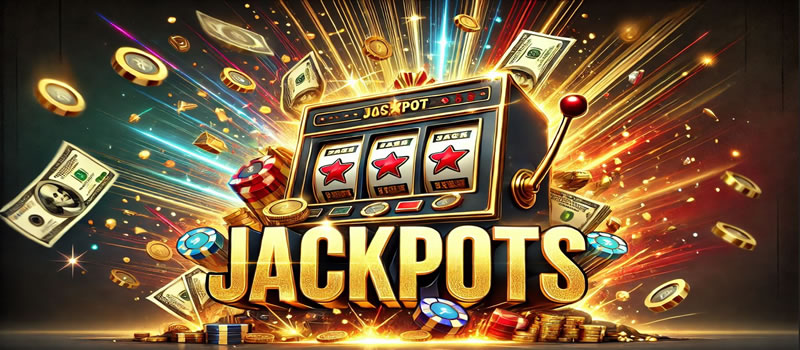The attraction of the jackpot is incredibly powerful that individuals across different backgrounds are drawn to it. It presents a nearly irresistible pull comes from the chance of winning a sizable quantity of money through gaming at casinos, participating in lotteries, or playing games of chance. For millions of people around the world, the idea of achieving sudden wealth and financially independent in an instant holds great appeal. Numerous psychological factors play a role in the jackpot's allure.
Key Takeaways
- Why jackpots captivate us: The thrill of winning big entices people due to the potential for transformative gains.The dopamine-driven jackpot effect: The brain's response to potential gains, such as winning a jackpot, is driven by the release of dopamine, creating a sense of pleasure and drive.The role of risk and reward: Our draw to jackpots is fueled by the combination of risk and potential reward, engaging the brain’s reward circuits.Optimism and hope in jackpot pursuits: The chance of a big win influences our outlook, fostering a sense of hope and positive expectation for the future.Social and cultural influences: The jackpot’s appeal to us is shaped by societal values, cultural expectations, and social influences.
The ability to enjoy luxury without financial concerns and the possibility of financial liberation are the main draws for many. The allure of potentially affording anything, such as designer clothes or far-flung travel, motivates people to seek out major wins. Also, a major part of the jackpot's appeal comes from its element of surprise & unpredictability. One cannot easily duplicate the excitement that is produced by the prospect of striking it lucky with a single ticket purchase or by a large slot machine payout. The draw to jackpots also appeals to people's primal need for risk-taking and thrill-seeking.
The chance of getting rich offers the promise of a thrilling new life free from the routine of day-to-day living. Many people are motivated to chase after huge jackpots because they find great resonance in the concept of taking a risk & possibly coming out on top. The thrill of placing a huge bet or the suspense of anticipating the outcome are just two examples of the many ways in which jackpots attract us because they tap into the natural human desire for excitement and risk. Dopamine's Role in Anticipating Wins. Dopamine is critical in our draw to jackpots, which is why jackpots are so alluring.
A neurotransmitter called dopamine is produced in response to enjoyable moments like eating delicious food, taking part in enjoyable activities, and yes, hitting a huge win. Dopamine plays a crucial role in the brain's reward circuits. Our brains release dopamine when we expect a possible reward, such as a lottery win, which makes us feel good and makes us want to go after the reward even more. The Dopamine-Propelled Chase of Massive Victories. There’s a powerful drive to look for chances for large wins by the strong attraction that is fueled by dopamine production in response to possible rewards.
The possibility of winning the lottery causes the brain to release a large amount of dopamine, which creates a rush of euphoria and excitement. This dopamine surge that fuels our craving to take risks in the hopes of landing a big win & draws us to jackpots. Addiction and compulsive behavior: dopamine’s downside. The brain floods dopamine when one is expecting great success, which can cause addiction-like excitement of hope and excitement. Some people develop an addiction to gambling, which can be explained by dopamine's role in attracting us to jackpots. A strong psychological pull that can result in addiction & an inability to resist the allure of big wins is created when dopamine is released in response to potential rewards.

Humans' innate drive for risk is closely tied to the allure of the lottery. The possibility of striking it rich is a high-stakes game that appeals to our deep need for risk and excitement. Our attraction to jackpots is driven by the rush that comes with going after big victories. Lots of people find great resonance in the concept of risk-taking and possibly hitting it big, which motivates them to gamble in the hopes of winning the ultimate lottery prize. Humankind’s history as hunter-gatherers may also provide insight into the role that risk and reward play in our fascination with jackpots.
Risk-taking was essential for survival throughout history because it often determined gathering food and going hungry. Because our ancestors found this behavior beneficial in securing resources, it became hardwired in us to look for opportunities with high rewards. Our natural desire for risk and reward continues to influence us today, causing us to be drawn to jackpots and encourage us to take chances in the hopes of striking it rich.
Our attraction to jackpots is driven by risk & reward, which connects with our need for independence and control over our own lives. The potential for wealth presents an opportunity for limitless living and on one's own terms. The opportunity to take a risk and possibly making huge gains taps into our innate need for independence and self-determination, which drives us to chase big rewards in the quest for financial independence. A huge part of jackpot allure is the psychology of optimism & hope. The possibility of striking it rich sparks hope for a better future, which fuels our ambition and inspires us to aim for large wins.
It is hard to ignore the optimism that arises from the thought that one fortunate event has the potential to improve our lives. The possibility of vast wealth draws on our innate yearning for optimism & hope, pushing us to take risks in the quest for future prosperity and stability. The psychology of optimism and hope also deeply influences our mindset about going after big victories.
Our optimism is fueled and we are motivated to pursue big wins despite the odds because we believe in the possibility of winning big. This sense of hope and excitement can create addiction-like behaviors. We take risks in search of financial security because we have an unshakeable sense of hope that one lucky win could change our future. The influence of optimism & hope on our thinking regarding jackpots also connects to our deep desire for control of our own lives. Our optimism is fueled by the possibility of winning big, which drives us to gamble in the pursuit of financial independence and freedom from financial constraints. It is impossible to overestimate the power of social and cultural pressures on our attraction to jackpots.
We are continuously exposed to messages that strengthen the allure of striking it rich, with media portrayals of overnight millionaires to societal norms to achieve financial wealth. Our attitudes toward chasing large wins are shaped by the ubiquitous influence of social and cultural factors, which also feed our addiction to jackpots and encourage us to gamble in the quest for financial security. Social pressure and social norms are just two more examples of how social and cultural factors affect our attraction to jackpots. Chasing big wins is seen as an desirable, glitzy, and exciting pursuit in various social groups.
People may chase large wins in an effort to win approval or impress others by feeling pressured to keep up with friends or those who have won big. The human desire for recognition is further evidenced by the societal influences on our draw to jackpots. The reason we crave jackpots and encourages us to take chances in the hopes of winning big is the chance for wealth and fame, which can further improve one's social status. The Addictive Nature of Jackpot Pursuits. The dopamine-driven reaction to prospective rewards can create a dangerous cycle that pushes people to take on more risk in the hopes live casino table games of winning big, often at a huge cost.
Chasing losses can result in a harmful pattern that can devastate an individual's financial stability and overall happiness. Jackpots' Dark Side: Mental Health and Relationships. Pursuing big wins can take a toll on personal relationships and emotional well-being in addition to financial ruin. People who develop an addiction to gambling frequently struggle with mounting debt & money problems, which can leave them feeling anxious, depression, and feelings of despair.
In addition, gambling for jackpots can strain bonds with friends & family, leading to isolation & isolated. The necessity of Support & Awareness. The dangers of going after large winnings highlight that people who may be experiencing compulsive gambling behavior need more understanding and support.
Society must recognize the risks of gambling and provide help to those in danger of addiction. By taking these steps, we can work towards a safer environment and more supportive for people who might be having trouble the temptation of jackpots. Develop strategies for responsible gambling behavior to allow people to control the psychological effects of jackpot pursuits.
Limiting the amount of time and amount of money invested on gambling activities can help people stay away from compulsive behavior patterns and reduce the risks in gambling for big wins. For those who may be battling addictive behaviors due to jackpot chasing, seeking support from friends, family, or trained professionals can be hugely beneficial. People can prevent themselves from developing compulsive gambling behavior patterns by adopting healthier coping strategies for handling stress and emotional triggers.
People can discover healthy ways to cope with stress without gambling by staying active, practicing mindfulness, or finding enjoyable hobbies and pastimes. In conclusion, individuals of all backgrounds are fascinated by the jackpot because of its strong allure. Our attraction to big wins is fueled by numerous mental triggers, ranging from the dopamine response in reaction to potential gains to our natural craving for risk. However, to avoid falling into gambling addiction, individuals need to recognize the dangers connected to chasing jackpots and adopt healthy habits for managing the emotional effects.
Individuals can still enjoy the thrill of jackpots without giving in to the negative effects of compulsive gambling behavior by understanding the mental triggers behind jackpot attraction & cultivating responsible, responsible gambling behaviors.
Frequently Asked Questions
What is the psychology behind the attraction to winning big jackpots?
Our interest in large jackpots stems from the brain's reward system. When we think about winning big, our brains produce dopamine, a neurotransmitter associated with pleasure and reward. This surge of dopamine creates a feeling of excitement and creates hope, which can be highly addictive.

Why do people continue to play for jackpots even after experiencing losses?
Gamblers keep playing despite losses because of the effect of near-miss events. When individuals come close to winning but ultimately fall short, it triggers a surge of dopamine just like that of an actual win. This near-miss experience fuels hope and encourage continued play, even when they’ve lost before.
What role does social influence play in the attraction to winning big jackpots?
Social factors are key in the attraction to winning big jackpots. The prominence of jackpot winners in the public eye and among friends builds social validation, leading individuals to think winning is possible and worth pursuing. Additionally, the joy and celebration around big wins can motivate others to start gambling.
Are there any potential negative effects of the attraction to winning big jackpots?
Craving big wins can have negative consequences, particularly when gambling becomes addictive. Constant gambling in pursuit of jackpots can result in financial strain, damage personal relationships, and trigger emotional distress. Additionally, the craving for jackpots can create false hope and skew one's view of odds.

How can individuals manage their attraction to winning big jackpots in a healthy way?
Individuals can manage their attraction to winning big jackpots with smart strategies by limiting time and money spent on gambling, gambling responsibly, and seeking support if they feel their attraction to jackpots is becoming problematic. It's important to approach gambling activities with a balanced perspective and enjoy it for fun over the pursuit of large wins.